This week’s Supreme Court decisions on Donald Trump’s finances and tax returns will allow us to finally answer the question that has hung over his presidency from the earliest days:
Is Donald Trump a brilliant businessman and a visionary statesman or is he a bogus billionaire who has been propped up by Russian money?
The information on Trump’s finances may not come out in time to impact his re-election campaign but it will have a profound impact on his legacy. The Court considered two cases. In the first, Trump v. Vance, the ruling means that Trump’s accounting firm will have to hand over financial records to the New York County District Attorney’s office. Once Trump is no longer president, prosecutors could use the information to accuse him of crimes. At any time, they could use the information to accuse his children or his associates of crimes. The other decision, Mazars v. Trump, keeps Congress away from Trump’s records but only until they can make a better case on the separation of powers issues. Both decisions were 7-to-2 votes with two Trump justices, Neil Gorsuch and Brett Kavanaugh, voting with the majority and against Trump.
Eventually the decisions announced today may help explain Trump’s love affair with Russia and its leader Vladimir Putin. From the earliest days of his presidency Trump has advocated policies towards Russia that are not grounded in any coherent foreign policy and that have been at odds with the foreign policy goals of most of the Republican Party.
Alone amongst the 2016 Republican presidential candidates, Trump had a different view of Russia and Ukraine. The first solid evidence came on July 11, 2016 when the Republican platform meeting began. Trump operatives moved to delete language from the platform that would call for “providing lethal defensive weapons” to the Ukraine and replace it with softer language calling for “appropriate assistance.” A few weeks later Trump gave an impromptu news conference from his golf course in Doral, Florida. His suggestion that Russia find Hillary’s 30,000 emails made big news. But he also had a less-well-covered exchange about Crimea and Russia:
“QUESTION: I would like to know if you became president, would you recognize (inaudible) Crimea as Russian territory? And also if the U.S. would lift sanctions that are (inaudible)? TRUMP: We’ll be looking at that. Yeah, we’ll be looking.”
Once in office, Trump proceeded to do things that raised suspicions about his relationship with Russia. He fired the FBI Director James Comey in an attempt to stop an investigation into Russian interference in the campaign, a move that made it look as if he had something to hide. Even after a Republican Senate had issued a report proving Russian interference Trump continued to call the story a hoax—going so far as to say publicly that he believed Vladimir Putin’s denials over the evidence of his own intelligence community. He threw American journalists out of an Oval Office meeting with the Russian Ambassador, he took notes away from the interpreter who sat in on a meeting with Trump and President Putin—leaving no record of the meeting. He has consistently badmouthed NATO and caused rifts in what has been, for decades, the strongest alliance against Russia. In an embarrassing press conference in Helsinki, Trump, a man who is always eager to prove his machismo, instead played lap dog to Vladimir Putin—resulting in howls of condemnation from all across the spectrum, including many Republican Senators. Not too long after that, he withdrew American troops from Syria, leaving it to the Russians. And it wasn’t long after that that he held up military aid to Ukraine in order to try and get dirt on Joe Biden. Trump’s habit of doing things for Russia led House Speaker Nancy Pelosi, in a famous Oval Office meeting, to assert that with Trump “All roads lead to Putin.”
His pattern of doing catering to Putin’s interests resulted in the fact that, in his first three years in office, Trump left behind a long list of disgruntled foreign policy advisors, many of whom quit in protest. And Republican Senators repeatedly departed from their usual fawning praise of the president to object to his foreign policy moves.
This year alone, as the country and the world reeled from the coronavirus pandemic and protests against police brutality against African-Americans, Trump continued to confound and disappoint even his Republican supporters when it came to moves that were seen as favorable towards Russia. In June he announced plans to bring home 9,500 American troops out of the 35,000 stationed in Germany. Once again, this sudden move drew strong objections from Republicans as well as Democrats.
Early this year a SEAL team raided a Taliban outpost and discovered $500,000 in cash. This led to an investigation indicating that the Russians had been providing Taliban fighters with bounties for killing American soldiers. Trump was apparently briefed on this in late March, although it was in his written briefing, which, he apparently rarely reads. This did not become public until the New York Times reported the story on June 26th. Until that story Trump had continued making favorable statements about Putin, even insisting that Russian be reinstated into the G-7. Faced with an embarrassing situation, Trump dismissed the intelligence as a hoax.
Democrats were outraged and demanded an explanation but received only White House spin. And while Republicans largely stayed silent, one Republican Senator, Ben Sasse of Nebraska, said Congress should investigate, asking “…did the commander in chief know? And if not, how the hell not?”
Trump’s romance with Putin has never been easily explained. It is unlikely that it is a case of “kompromat,” which is usually associated with sexual or personal misconduct of one sort or another. Sexual misconduct is unlikely to bother Trump and his supporters. He has already admitted to extra-marital affairs and to grabbing women inappropriately. He has paid off multiple women with whom he had affairs—one of whom was an adult film actress.
The other explanation that comes to mind stems from Trump’s out of control narcissism. It is possible that he is so obsessed with the possibility that he won in 2016 solely because of Russian interference that he has gone out of his way to deny any wrongdoing on the part of Russia. In spite of Trump’s rhetoric and veto threat, the Senate did pass a tough Russian sanctions bill early on in the administration. And in late 2017, Trump’s administration reversed its stance in the Republican platform and approved the sale of lethal weapons to Ukraine.
The final explanation might be found in his financial dealings. Trump has a long history of doing business with shady Russian characters with ties to Russian intelligence.[1] His behavior in office, beginning with his refusal to release his tax returns and the vehemence with which he has fought any transparency when it comes to his business affairs, leads one to wonder—what does he owe Russia? The Court’s decisions may eventually answer this question one way or the other.
[1] See for instance, Timothy Snyder, The Road to Unfreedom, Crown Publishing, 2018. And House of Trump, House of Putin, by Craig Unger, Dutton Books, 2018.
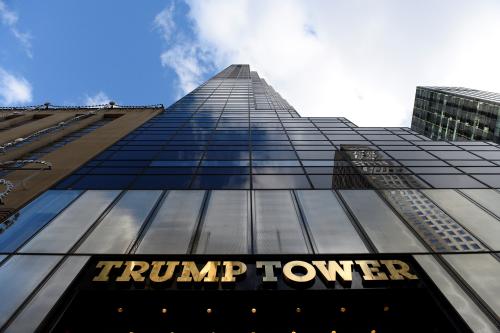
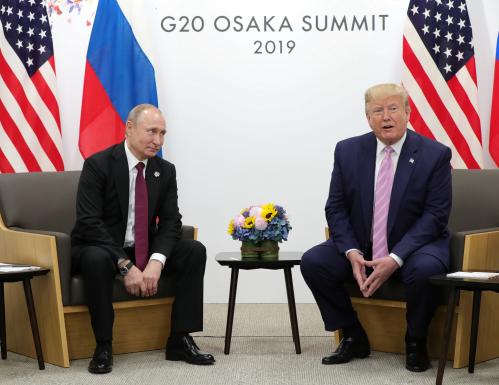
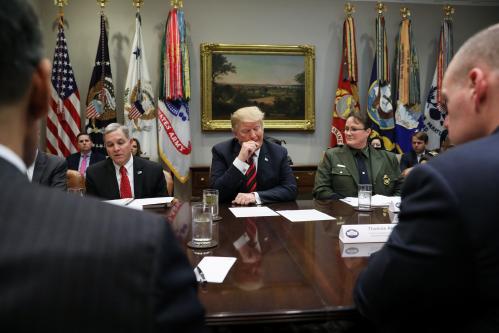


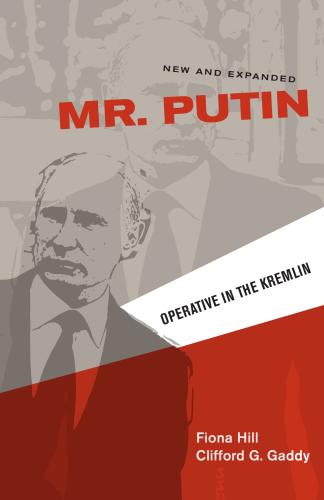



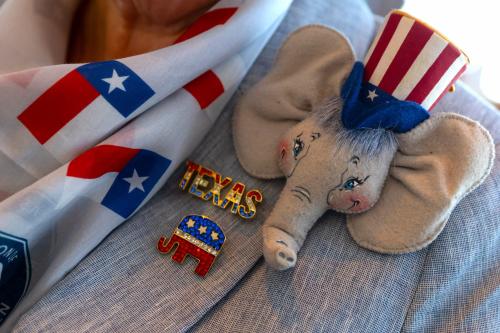
Commentary
Does Trump owe Russia? The Supreme Court’s ruling on the president’s taxes may eventually give us answers
July 10, 2020